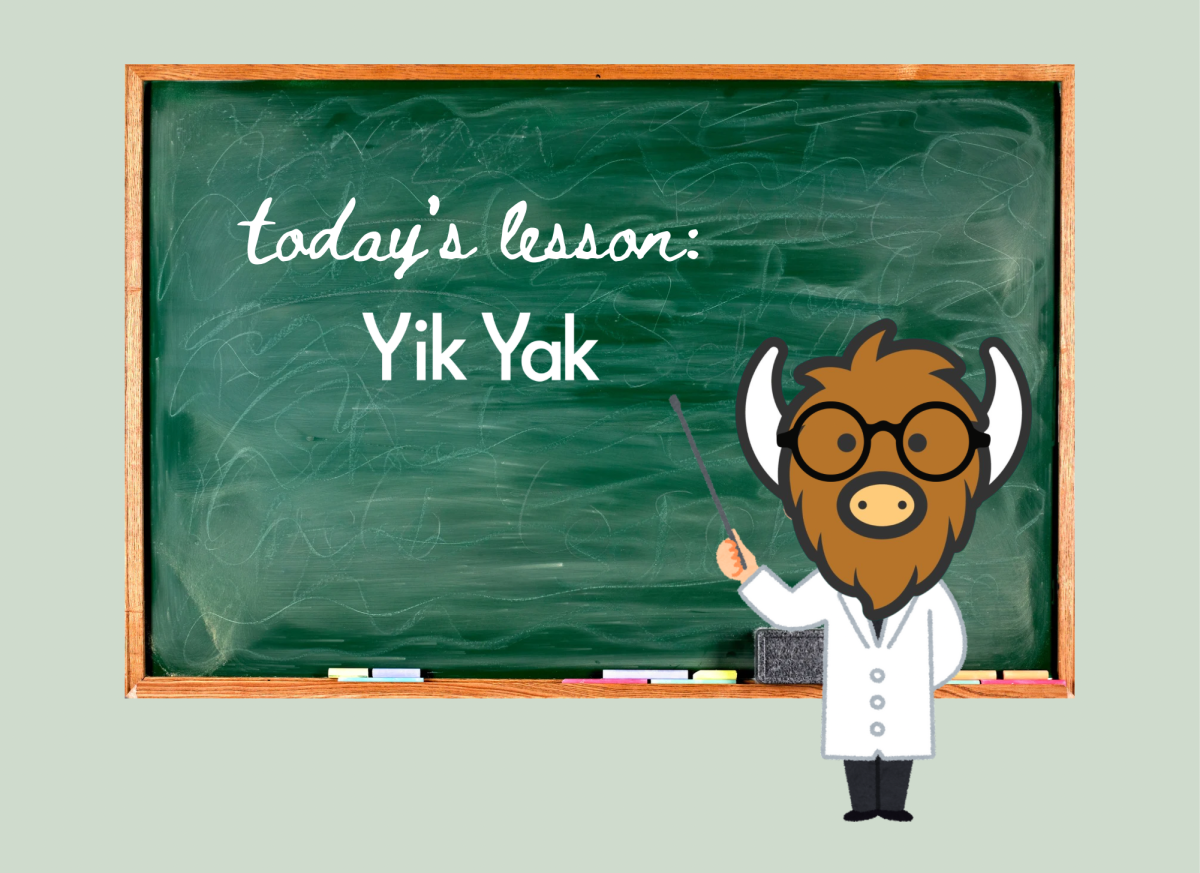YikYak, the anonymous social media platform, is used by students to share funny comments, ask pressing questions and contribute general complaints about life. However, after a recent update where the anonymous app started encouraging usernames, a few users came forward as professors, changing the app’s dynamic.
Though students have always assumed that faculty and staff have been on the app, it has never been confirmed or announced. With the introduction of usernames posters like “theprofessor” and “another_professor” have started posting asking for class opinions and even contributing their own humorous thoughts.
“Have a wonderful Saturday, students!” said @another_professor on YikYak. “Please refrain from adding to the population. Most definitely don’t subtract from the population.”
While this post has 637 upvotes, or likes, clearly showing a general appreciation of this joke there were also a couple of inappropriate comments that would certainly not have been made in front of a professor in person.
These comments can call into question the appropriateness of an admitted professor posting and receiving these responses.
“I think that when faculty or staff encroach on a student space that is concerning because students are on there for a reason, it serves a need for them,” said Amanda Respess, Director of Public Affairs. “So it’s kind of interruptive for faculty, staff or non-students in general, I think, to be there if they are going to comment.”
However, the use of YikYak by faculty and staff has been around for a long time, and it is mainly based on wanting to be in touch with the students, and their opinions on things. Professors have been active on YikYak without commenting, and it has not been a topic of discussion since they have assumed a watcher position.
Having professors actively posting on YikYak does not seem to have harmed the amount or content of what students post on the app. Instead of just observing they have started to ask direct questions to GCSU students.
“Hey students, How can I make my classes more engaging for you guys?” said @another_professor on the platform. “I’m having a hard time getting my students to participate in class and I know you guys don’t like getting called on. What do you guys suggest for me? Thanks.”
This post got 11 comments of mostly helpful advice for this professor to improve their class engagement. Using YikYak in this way could be considered one of the most beneficial uses of this platform since it has also been known to produce a lot of negativity.
“I think they’re cutesy,” said an anonymous YikYak user, referring to the professor’s posting.
Since YikYak is an anonymous app, there is no way to know who these professors are, and therefore what they post cannot be monitored or controlled unless the University System of Georgia, USG, decides to step in with an addition to their “better practices” guidelines.
“I think if they make the choice to post on YikYak and identify themselves as a professor, they are assuming a certain amount of responsibility,” Respess said.
An inclusion of whether professors can or cannot post on the anonymous app would still be difficult to monitor and could encroach on the professors’ freedom of speech. Determining if faculty posting on YikYak is appropriate is not only just a personal opinion but could be seen as a nonsense battle to begin.


